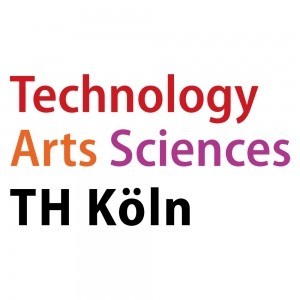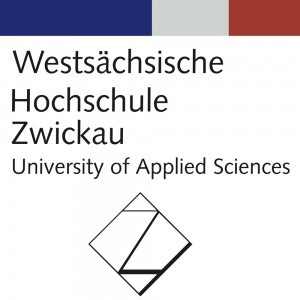Photos of university / #uniheidelberg
South Asian Studies at Heidelberg University offers an interdisciplinary and comprehensive exploration of the rich history, diverse cultures, societies, languages, and political landscapes of the South Asian region. This program is designed for students who wish to gain an in-depth understanding of countries such as India, Pakistan, Bangladesh, Sri Lanka, Nepal, Bhutan, and the Maldives, as well as their global interactions and influences. Through a combination of historical perspectives, cultural studies, political analysis, and language acquisition, students will develop critical insights into the complex dynamics that shape South Asia today.
The curriculum includes courses on South Asian history from ancient to modern times, literature and languages such as Hindi, Urdu, Bengali, Tamil, and others, as well as politics, economics, and development issues relevant to the region. Emphasizing both theoretical frameworks and practical skills, the program prepares students for careers in international relations, academia, development work, journalism, or careers requiring regional expertise. Students have opportunities for immersive experiences, including language training, fieldwork, and exchange programs, to enhance their understanding and practical skills.
The interdisciplinary approach is complemented by modules that foster cross-cultural understanding, language proficiency, and analytical skills. Faculty members are recognized experts in South Asian history, politics, linguistics, and cultural studies, providing mentorship and research opportunities. Graduates of the program are equipped with a nuanced, critical perspective on South Asia's past and present, preparing them for global careers or further academic pursuits. Heidelberg University's South Asian Studies program is committed to fostering an inclusive academic environment that promotes diversity, critical thinking, and intercultural dialogue.
Educational organisation
The programme comprises a total of 120 credit points over four semesters. In the first three semesters, students attend seminars and lectures. In the final semester, students write their thesis and take the exam in the discipline of their primary study focus.Students chose two study foci as well as courses from one other complimentary discipline. A study focus provides in-depth knowledge in the chosen field. The following study foci are offered: Anthropology, Art History and Visual Culture, Geography, History, and Political Science.
Throughout the first three semesters, students will also be obliged to take courses in scientific working techniques. This includes an academic student conference, in order to improve students' academic skills, during the second semester.
A major in South Asian Studies can also be combined with another minor at Heidelberg University. Here is the list of possible minors: http://www.uni-heidelberg.de/md/studium/interesse/faecher/begleitfaecher.pdf.
Forms of assessment
One ECTS credit equals thirty working hours. There are a variety of forms of assessment, such as oral exams, written exams, presentations, literature reviews, translations, or essay writing. The course catalogue will give you a detailed overview of the forms of assessment proposed by the lecturer and of the expected workload.Language requirements
If your first language is not English, you have to provide evidence of your proficiency in English. You may supply evidence in the form of an IELTS (overall score 7), Cambridge English: Advanced (CAE 67), or TOEFL (Internet-based 95) certificate. If you have a German/Austrian/Swiss high school diploma (Abitur/Matura), you may prove your English language proficiency with your obtained English grade. If your Bachelor's degree was obtained in an English-speaking country, proof of English proficiency is not necessary.For postgraduate studies in South Asian Studies, you do not need proficiency in German to successfully complete the study programme. All modules can be completed in English. However, not all courses are held in English and if you want to enjoy the full variety of courses, the university's student services, and your stay in Germany, you should acquire at least a passive knowledge of German. Evidence of German language proficiency can be provided in the form of a Goethe-Institut or DSH certificate.
Students will be assisted in identifying suitable language courses provided by private institutions, Heidelberg University, and/or South Asian-based German institutions and private tutors. We also arrange a "tandem" language exchange for new students in which you are paired with a German student for a mutually beneficial language learning experience.
Academic requirements
Applicants are required to have a Bachelor's degree (at least three years) in one of the following disciplines: development economics, anthropology, geography, history, art history, cultural studies, or political science. Other disciplines are welcome if the applicant can provide detailed information showing that major parts of his/her study programme included knowledge of the mentioned disciplines, the South Asia region, or South Asian languages.Note: According to the rules set by the Central Office for Foreign Education, applicants with a degree from a South Asian University need at least four years of university education.
Enrolment fees
Students must pay a registration fee every semester (approx. 140 EUR). Most of this money helps the university to provide subsidised services, e.g. student accommodation, student meals, public transport, etc. Neither Heidelberg University nor the South Asia Institute charges admission or tuition fees for the Master of Arts in South Asian Studies.Costs of living
Expect to spend at least 700 EUR per month for general living expenses, accommodation, health insurance, public transport, etc. For example:- Medical insurance premiums are currently approx. 70 EUR per month.
- At present, the monthly rent for a room or a small flat is approx. 250 to 500 EUR.
- The semester ticket, which allows students to use almost all forms of public transport in the Heidelberg area free of charge during the semester, costs 155 EUR.









